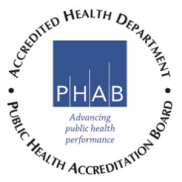Prevention is your best defense from becoming infected with a mosquito or tickborne disease. Preventing insect bites reduces your risk of getting West Nile Virus (WNV), Tickborne Diseases (TBD) or other diseases that insects carry.
Steps you can take to reduce your risk of infection.
Avoid Contact
Consider staying indoors at dawn, dusk, and in the early evening, which are peak mosquito biting times. Avoid tick-infested areas such as tall grass and dense vegetation. Check yourself, your children and pets often for ticks. Bathe or shower within two hours after being where ticks live to find and wash off ticks that may be crawling on you.
Take extra care to use repellent and protective clothing during evening and early morning, or consider avoiding outdoor activities during these times. Install or repair window and door screens so that mosquitoes cannot get indoors.
Protective Clothing
When weather permits, wear long-sleeves, long pants and socks when outdoors. Tuck your pants into sock tops or boots and wear light-colored clothing to make it easier to find crawling ticks.
Mosquitoes may bite through thin clothing, so spraying clothes with repellent containing permethrin or another EPA-registered repellent will give extra protection. Don’t apply repellents containing permethrin directly to skin. Do not spray repellent on the skin under your clothing. Place mosquito netting over infant carriers when you are outdoors with infants.
Drain Standing Water
Reduce the number of mosquitoes in areas outdoors where you work or play, by draining sources of standing water. In this way, you reduce the number of places mosquitoes can lay their eggs and breed.
- Remove standing water in old tires, buckets, garbage cans, soda cans or any other containers.
- Clean out gutters and unblock drainage ditches. Check flat roofs that may have poor drainage.
- Cover barrels and trash containers tightly with a lid or with a fine mesh screening material.
- Empty water in plant pots and plastic wading pools at least once a week. Turn over or store indoors when not in use.
- Check tarps on boats, grills and other equipment that may collect water.
- Change water in bird baths and pets’ water bowls at least twice a week.
- Fill in tree holes and hollow stumps that hold water.
- Drill holes in tires used on playgrounds to allow them to drain.
- Treat standing water with products that kill mosquito larvae. These are available at home improvement stores and garden centers.
Insect Repellents
Use an EPA-registered insect repellent such as those with DEET, picaridin, or oil of lemon eucalyptus. Even a short time being outdoors can be long enough to get a mosquito bite. Think of repellent as you would an important article of clothing, and increase your chances of avoiding weeks (or even months) of aches and fatigue that come with West Nile Virus (WNV), Tickborne Diseases (TBD),or other insect borne diseases.
Of the active ingredients registered with the Environmental Protection Agency (EPA), two have shown to work better and give longer-lasting protection than others:
- DEET
- Picaridin
Products containing these next two active ingredients typically provide reasonably long-lasting protection:
- Oil of Lemon Eucalyptus or PMD
- IR3535
Protect children
- Read label instructions and be sure the repellent is approved for use on children.
- Do not use mosquito repellents containing oil of lemon eucalyptus on children less than three years of age.
- Do not use DEET on children younger than two months old.
- Keep infants indoors or use mosquito netting over carriers when mosquitoes are present.
Certain products that contain permethrin can be used on clothing, shoes, bed nets and camping gear. Permethrin is highly effective as an insecticide and as a repellent. Permethrin-treated clothing repels and kills ticks, mosquitoes and other insects and retains this effect after repeated laundering. Reapply permethrin insecticide according to the label instructions. Some commercial products are available pretreated with permethrin. Do not use permethrin directly on skin.
Use repellents safely
- Apply just enough repellent to cover exposed skin or clothing. Do not use under clothing.
- Most insect repellents made for humans do not work on lice or fleas.
- Store insect repellents safely out of the reach of children, in a locked utility cabinet or garden shed.
- Do not spray directly into face; spray on hands first and then apply to face. Do not apply near eyes and mouth, and apply sparingly around ears.
- Avoid breathing a spray product.
- Never use repellents over cuts, wounds, or irritated skin.
- Do not spray in enclosed areas or near food.
- Wash treated skin and clothes with soap and water after returning indoors.
- Use only products made for humans on humans.
- Use only products made for pets or other animals on pets or other animals.
Preventing Ticks in your Yard
You can reduce tick populations in your yard by:
- Remove leaf litter.
- Clear tall grasses and brush around homes and at the edge of lawns.
- Place a 3-ft wide barrier of wood chips or gravel between lawns and wooded areas to restrict tick migration into recreational areas.
- Mow the lawn frequently.
- Stack wood neatly and in a dry area (discourages rodents).
- Keep playground equipment, decks, and patios away from yard edges and trees.
- Discourage unwelcome animals (such as deer, raccoons, and stray dogs) from entering your yard.
- Remove old furniture, mattresses, or trash from the yard that may give ticks a place to hide.
For more information, see the CDC’s guidelines or EPA guidelines.
You may also visit our Tickborne Disease in Arkansas page on this website.


